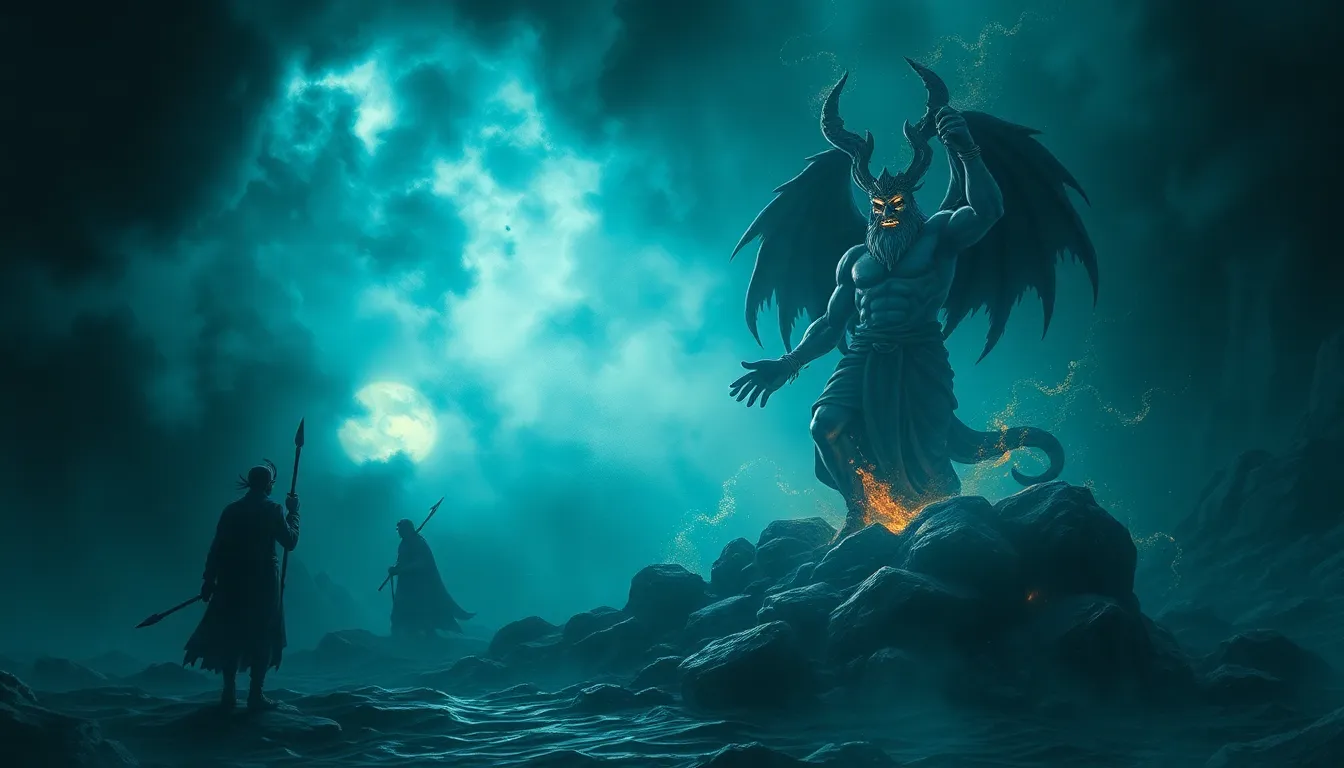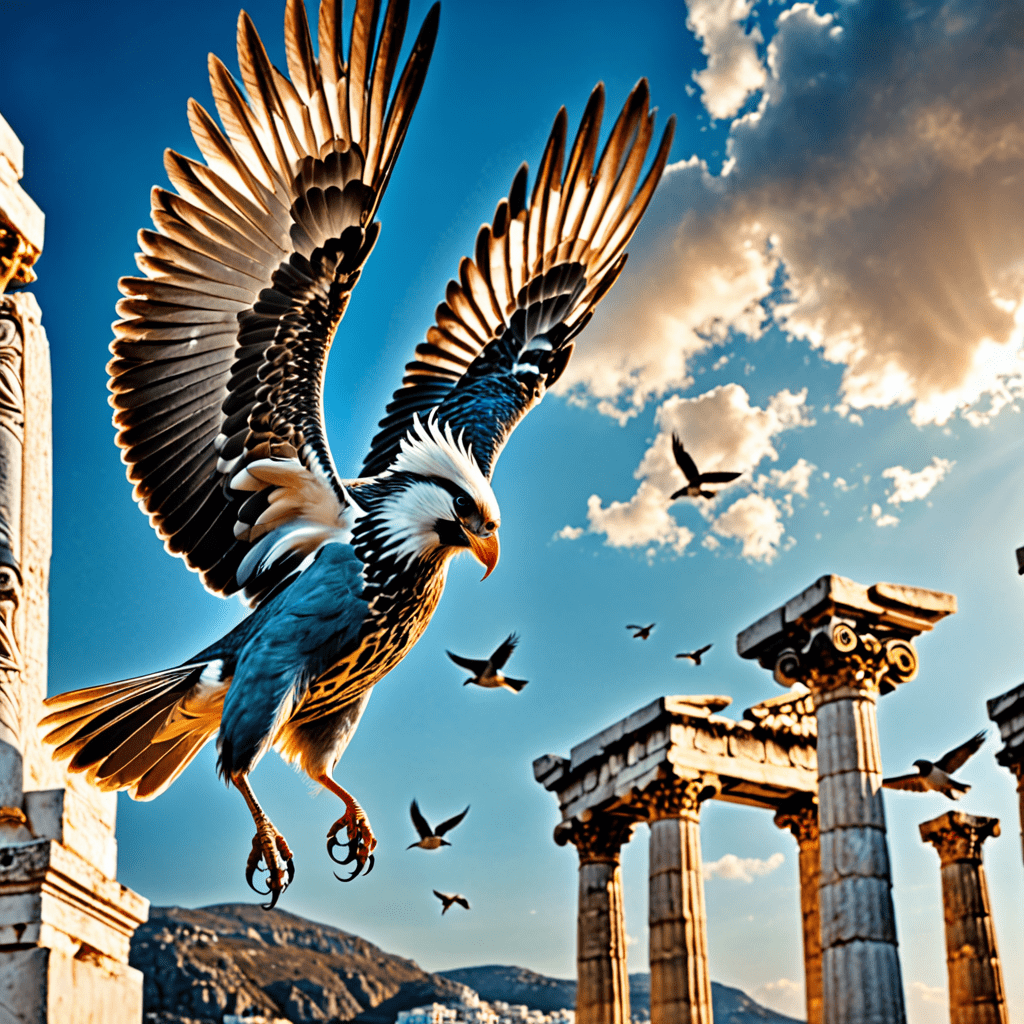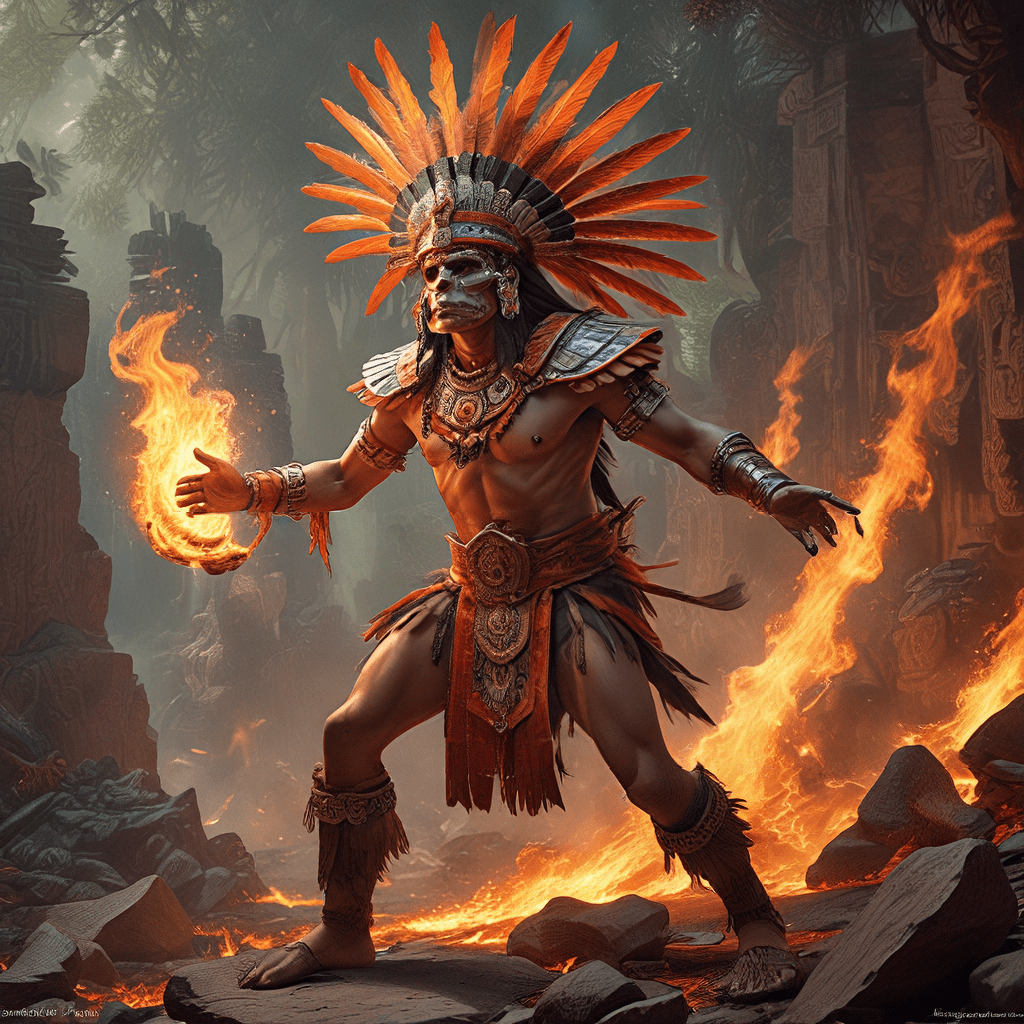Cursed by the Divine: The Most Notorious Punishments in Mythology
I. Introduction
Divine punishment in mythology often serves as a narrative device that conveys the moral and ethical principles of a culture. These stories illustrate the consequences of defying the gods, showcasing how divine retribution can manifest in various forms. Exploring mythological curses is crucial as it helps us understand the values, fears, and beliefs of ancient civilizations. This article will delve into the concept of divine justice, examining notable punishments across different mythologies, including Greek, Norse, Egyptian, Hindu, Mesopotamian, and Asian traditions, as well as the role of mortals in their own downfalls.
II. The Concept of Divine Justice in Mythology
Divine justice is a recurring theme across different cultures, embodying the belief that the gods oversee human affairs and enforce moral standards. The role of gods and goddesses in mythology often involves meting out punishment for transgressions against divine laws or the natural order. The consequences of human hubris and arrogance are particularly highlighted in these narratives, serving as cautionary tales for those who might challenge divine authority.
A. Understanding divine justice across different cultures
- Various interpretations of justice exist, influenced by cultural context.
- Gods often embody moral ideals, punishing those who deviate from them.
- Mythological tales reflect societal values and the importance of humility.
B. The role of gods and goddesses in enforcing morality
Deities serve as enforcers of cosmic order, acting when mortals overstep boundaries. Their interventions often illustrate a moral lesson, emphasizing the importance of adhering to societal norms and divine expectations.
C. The consequences of human hubris in mythological tales
Many myths feature protagonists who display excessive pride or defiance, leading to their downfall. These narratives remind audiences of the fragility of human existence in the face of divine power.
III. Greek Mythology: The Wrath of the Olympians
Greek mythology is rich with tales of divine punishment, showcasing the often capricious nature of the Olympian gods. Notable stories illustrate the severe consequences of offending the gods, serving as powerful reminders of their authority.
A. Overview of notable punishments in Greek myths
- Prometheus: Punished for stealing fire.
- Medusa: Transformed into a monster for being a victim of divine jealousy.
- Sisyphus: Condemned to eternal toil for his deceitfulness.
B. Case Study: Prometheus and the gift of fire
Prometheus, a Titan, defied Zeus by stealing fire from the gods to give to humanity. In retaliation, Zeus punished him by having him bound to a rock where an eagle would eat his liver daily, only for it to regenerate each night. This myth highlights the theme of sacrifice and the consequences of defying divine authority.
C. Case Study: Medusa’s transformation and its implications
Medusa, once a beautiful maiden, was transformed into a monstrous Gorgon by Athena after being violated in her temple. This punishment not only serves to illustrate the harshness of divine retribution but also reflects societal views on victimization and blame.
IV. Norse Mythology: The Fates of the Unworthy
Norse mythology presents a stark portrayal of divine punishment, often focusing on themes of fate and retribution. The gods are depicted as powerful yet fallible beings who do not hesitate to impose severe consequences on mortals and other beings.
A. Overview of punishment themes in Norse tales
- Fate and destiny play crucial roles in the outcomes of various characters.
- Divine punishment often involves physical and psychological torment.
B. Case Study: Loki’s punishment and the binding of Fenrir
After causing chaos among the gods, Loki was punished by being bound with the entrails of his son, while a serpent dripped venom upon him. This punishment reflects the notion of justice being served for betrayal and malice, emphasizing the consequences of disloyalty to the gods.
C. Case Study: The eternal torment of Hela’s victims
In Norse belief, Hela rules over the underworld, where those who die unheroic deaths face eternal torment. This narrative reinforces the importance of valor and honor in Norse culture, highlighting the dire consequences of a life lived without courage.
V. Egyptian Mythology: The Balance of Ma’at
In Egyptian mythology, the concept of Ma’at represents truth, balance, and cosmic order. Divine punishment is closely tied to maintaining this balance, with the gods acting to ensure that order prevails in the universe.
A. Understanding the concept of Ma’at in Egyptian beliefs
- Ma’at is essential for harmony in both the cosmos and human society.
- Divine retribution is often enacted to restore balance when it is disrupted.
B. Case Study: The punishment of Set and the fate of Osiris
Set, the god of chaos, murders his brother Osiris, disrupting the balance of Ma’at. Osiris’s resurrection and Set’s eventual punishment illustrate the cyclical nature of justice and the restoration of order, emphasizing the importance of truth and integrity.
C. Case Study: The weighing of the heart and its consequences
In the afterlife, the hearts of the deceased are weighed against the feather of Ma’at. Those deemed unworthy face punishment in the form of being devoured by Ammit, the soul-eater. This process illustrates the significance of living a life aligned with truth and righteousness.
VI. Hindu Mythology: Karma and Divine Retribution
Hindu mythology emphasizes the concept of karma, where actions have consequences that can affect individuals across lifetimes. Divine punishment is intricately linked to the moral fabric of the universe.
A. Overview of karma in Hindu beliefs
- Karma dictates the moral consequences of one’s actions.
- Divine intervention may occur to rectify imbalances caused by negative karma.
B. Case Study: The curse of the Gandharvas
The Gandharvas, celestial musicians, were cursed for their arrogance, transforming them into humans. This story exemplifies the idea that pride can lead to a significant fall, reinforcing the need for humility.
C. Case Study: The story of King Harishchandra and his trials
King Harishchandra, known for his unwavering commitment to truth, faces immense trials imposed by Sage Vishwamitra. His suffering ultimately leads to divine intervention and redemption, highlighting the interplay of karma and divine justice.
VII. Mesopotamian Myths: Curses of the Gods
Mesopotamian mythology features numerous tales of divine curses and punishments, reflecting the complex relationship between humans and the divine.
A. Overview of divine punishment in Mesopotamian mythology
- Gods often impose curses as a reflection of their displeasure.
- Humans are frequently portrayed as flawed beings subject to divine whims.
B. Case Study: The curse of Gilgamesh
Gilgamesh, the hero-king, faces a curse from the gods after seeking immortality. This narrative teaches the inevitability of death and the importance of accepting one’s mortal nature.
C. Case Study: Inanna and the descent to the underworld
Inanna’s journey to the underworld results in her temporary death, showcasing the consequences of defying the natural order. Her eventual resurrection underscores themes of rebirth and the cyclical nature of life and death.
VIII. Asian Mythologies: Curses and Their Repercussions
Asian mythologies, particularly Chinese and Japanese, also explore themes of curses and divine punishment, often illustrating moral lessons through tragic tales.
A. Overview of curse themes in Chinese and Japanese mythology
- Curses often serve as warnings against immoral behavior.
- Divine punishment reflects the cultural values of honor and respect.
B. Case Study: The curse of the Jade Emperor
The Jade Emperor, a supreme deity in Chinese mythology, punishes those who disrupt the cosmic order. His actions remind mortals of the importance of respecting the divine hierarchy and the consequences of



